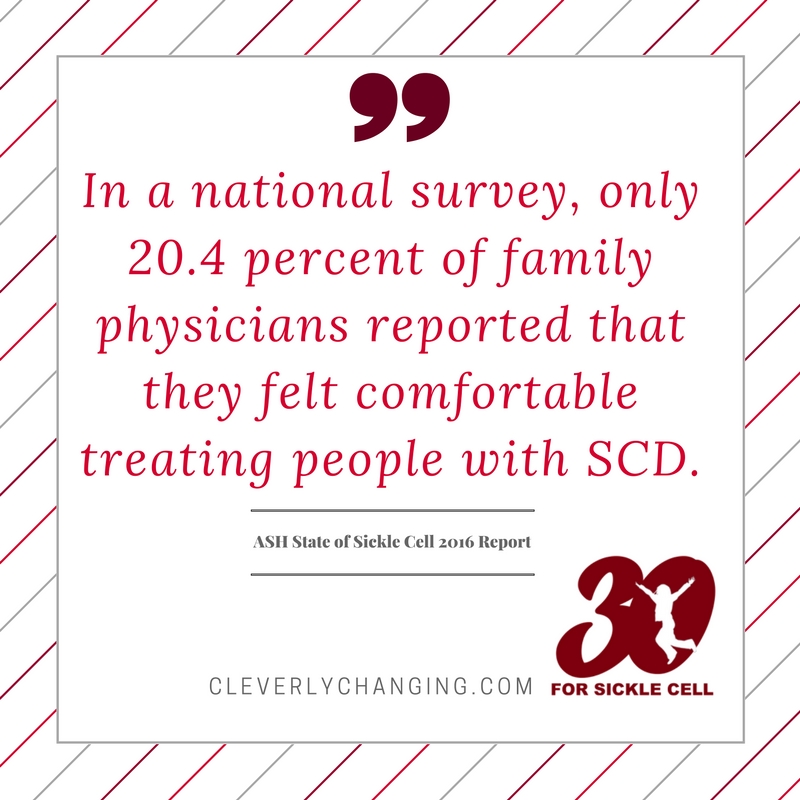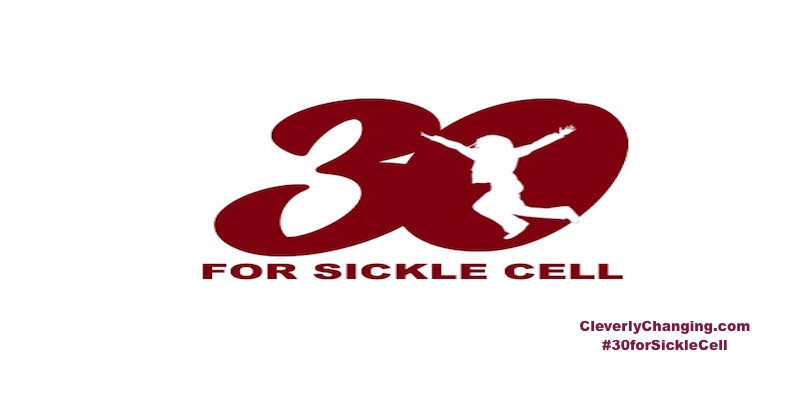Kyle’s story sheds light on the need for people living with sickle cell disorder to trust their doctor. Kyle was hospitalized over a thousand times. For many sickle cell patients, hospitalizations are inevitable. As a result, sickle cell patients and their families should research their medical professionals and find the best specialists who will give them the care they need.
Yesterday, I shared with my readers the State of Sickle Cell 2016 Report from the American Society of Hematology. I’ll share several statistics from the report throughout the month. One statistic I want to discuss today is: “In a national survey, only 20.4 percent of family physicians reported that they felt comfortable treating people with SCD.” Wow!
Do you believe a patient/provider relationship is the key to better hospital care for #SickleCell patients?

Parenting a child with sickle cell, I understand the struggle. Anytime she feels sick I can get an uneasy feeling. I may even question myself because I fear the illness could lead to a pain crisis. Instead of being fearful, it is important to develop a good relationship with her doctors, so we can prevent pain-crisis from ever happening.
[tweetthis]What do you feel is the key to better patient care for #sicklecell patients?[/tweetthis]
About a year ago, my daughter wasn’t feeling well, it seemed like a virus and not sickle cell related, so I called her pediatrician’s office, but the office was closed for their annual Christmas party. As a result, I took my daughter to a new pediatric Urgent Care Center. After, I completed the paperwork, and the doctor read that my daughter had sickle cell, then she told me she could not see her. At least she was honest. She advised me to travel 30 minutes away to her Hematologist. Then I learned, even when the matter is not sickle cell related call her Hematologist. Let him or her know what is taking place. Thankfully, it was not sickle cell related. The lesson taught me to always try to stick with the same healthcare professionals who know my daughter, so she receives care from professionals who have followed her health over the years.
Following the experience, I have actively worked with her doctors to make them feel more comfortable treating her medical needs.
6 Tips That Will Help You Trust Your Doctor?
- Partner with them and let them know you are looking forward to building a relationship. Let your guard down and be open about your medical needs as a patient or as a caregiver.
- Go to appointments regularly.
- Share what has worked in the past to help overcome a similar health concern arises.
- Follow the doctor’s treatment plan.
- Keep your doctor informed of the changes you experience.
- Keep a medical diary/journal.
This statistic will change when:
- More doctors receive specialized training for sickle cell disorders.
- More motivated medical students who want careers as sickle cell hematologists.
- Emergency rooms and urgent care centers gain more training on how to better treat sickle cell patients
- More sickle cell health centers open up around the nation.
Reference:




